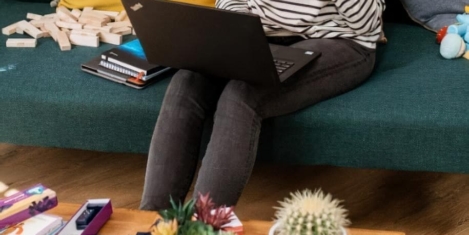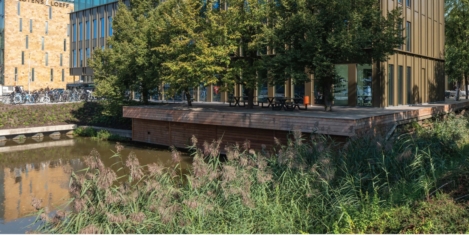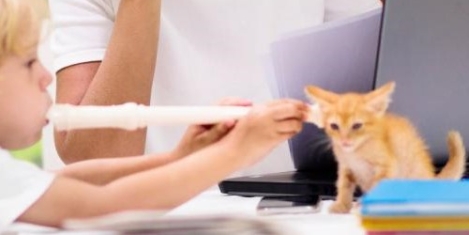To provide the best experiences, we use technologies like cookies to store and/or access device information. Consenting to these technologies will allow us to process data such as browsing behaviour or unique IDs on this site. Not consenting or withdrawing consent, may adversely affect certain features and functions.
The technical storage or access is strictly necessary for the legitimate purpose of enabling the use of a specific service explicitly requested by the subscriber or user, or for the sole purpose of carrying out the transmission of a communication over an electronic communications network.
The technical storage or access is necessary for the legitimate purpose of storing preferences that are not requested by the subscriber or user.
The technical storage or access that is used exclusively for statistical purposes.
The technical storage or access that is used exclusively for anonymous statistical purposes. Without a subpoena, voluntary compliance on the part of your Internet Service Provider, or additional records from a third party, information stored or retrieved for this purpose alone cannot usually be used to identify you.
The technical storage or access is required to create user profiles to send advertising, or to track the user on a website or across several websites for similar marketing purposes.
![]() The EU Parliament has announced that it would like to protect what it calls employees’ fundamental rights to disconnect from work which includes restricting the way employers might contact staff outside their contracted working hours. Although the right to disconnect is not defined by EU law, the Parliament has called upon the Commission to come up with a law allowing employees to disconnect from work during non-work hours without consequences and setting minimum standards for remote work. (more…)
The EU Parliament has announced that it would like to protect what it calls employees’ fundamental rights to disconnect from work which includes restricting the way employers might contact staff outside their contracted working hours. Although the right to disconnect is not defined by EU law, the Parliament has called upon the Commission to come up with a law allowing employees to disconnect from work during non-work hours without consequences and setting minimum standards for remote work. (more…)





 A new generation of long-term homeworkers created by COVID-19 is at risk physically and mentally through inadequate employer support, claims research by
A new generation of long-term homeworkers created by COVID-19 is at risk physically and mentally through inadequate employer support, claims research by 
 New research from
New research from 
 With primary and secondary schools closed to the majority of pupils as of 5 January 2021, many working parents have found themselves with an impossible task. How to juggle a full day of home schooling with a full day of work, all whilst in lockdown?
With primary and secondary schools closed to the majority of pupils as of 5 January 2021, many working parents have found themselves with an impossible task. How to juggle a full day of home schooling with a full day of work, all whilst in lockdown? 
 A new report by
A new report by 
 The past year will go down in history as one of dramatic change. One of the most notable upheavals was the almost overnight transition to full-time remote working for millions of ‘non-essential’ employees. With England now in its third national lockdown, many of us will likely not be going back to our offices until April 2021, over a year since we left them. Even when people are able to return to our old workplaces, just 12 percent of employees want to do so full-time, according to
The past year will go down in history as one of dramatic change. One of the most notable upheavals was the almost overnight transition to full-time remote working for millions of ‘non-essential’ employees. With England now in its third national lockdown, many of us will likely not be going back to our offices until April 2021, over a year since we left them. Even when people are able to return to our old workplaces, just 12 percent of employees want to do so full-time, according to 
 With six weeks still to go until the Chancellor’s Budget, the CIPD is urging the Government to act early to extend the furlough scheme to protect jobs, support incomes and enhance skills development. Its calls are outlined in a report called
With six weeks still to go until the Chancellor’s Budget, the CIPD is urging the Government to act early to extend the furlough scheme to protect jobs, support incomes and enhance skills development. Its calls are outlined in a report called 
 Smart Building Certification, the organisation behind the smart accreditation, awarded its first platinum building. The founders of Smart Building Certification handed the first official platinum certification over to Coen van Oostrom, Founder and CEO of EDGE.
Smart Building Certification, the organisation behind the smart accreditation, awarded its first platinum building. The founders of Smart Building Certification handed the first official platinum certification over to Coen van Oostrom, Founder and CEO of EDGE. 
 According to a recent
According to a recent 
 The COVID-19 pandemic left businesses in an unprecedented position of having to rapidly adapt workplace practices and implement new processes at a moment’s notice. Of course, those companies that were already accustomed to home office set-ups and flexible hours were in a much better place to adapt to these changing circumstances. However, not all businesses were prepared for the sudden change to work routines.
The COVID-19 pandemic left businesses in an unprecedented position of having to rapidly adapt workplace practices and implement new processes at a moment’s notice. Of course, those companies that were already accustomed to home office set-ups and flexible hours were in a much better place to adapt to these changing circumstances. However, not all businesses were prepared for the sudden change to work routines. 
 New research by
New research by 







January 28, 2021
Philanthrocapitalism: a century-old concept for the modern age
by Richard Glynn • Comment, Wellbeing